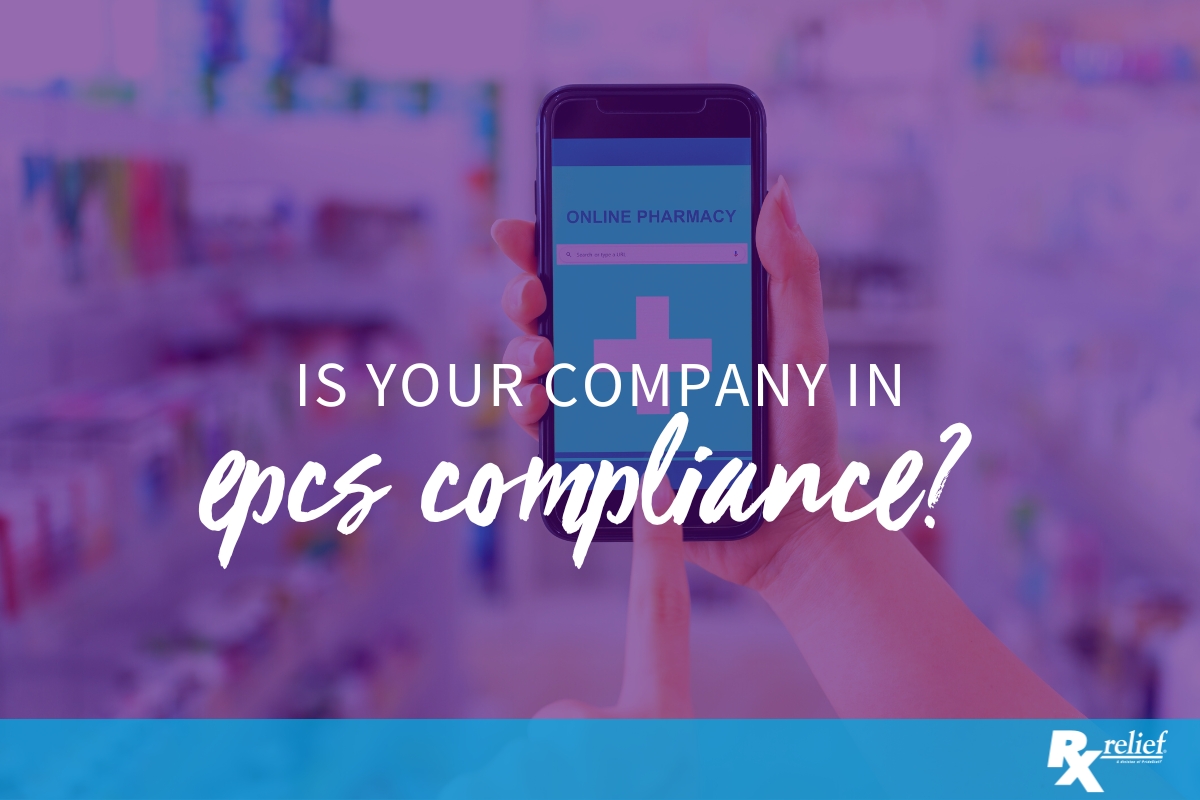Is Your Organization in EPCS Compliance?

The electronic prescribing of controlled substances (EPCS) law is a federal regulation that allows healthcare providers to make and dispense prescriptions for controlled substances electronically.
The law aims to reduce prescription drug abuse and fraud by requiring that electronic prescriptions for controlled substances be written and transmitted securely and that they be verified using two-factor authentication. EPCS also requires that pharmacies and other dispensers are able to receive, dispense, and archive electronic prescriptions for controlled substances. The law was passed in 2010 as part of the Secure and Responsible Drug Disposal Act.
EPCS Compliance
To comply with the electronic prescribing of controlled substances (EPCS) law, healthcare providers and pharmacies must have in place certain technical, physical, and administrative safeguards.
Technical safeguards
Providers and pharmacies must use secure electronic prescribing systems that comply with DEA rules. These systems must use two-factor authentication to verify the identity of the prescriber and must encrypt and digitally sign the prescription.
Physical safeguards
Providers and pharmacies must protect their electronic prescribing systems from unauthorized access and must have policies and procedures in place to ensure that only authorized users have access to the systems.
Administrative safeguards
Providers and pharmacies must have policies and procedures in place to transmit electronic prescriptions securely, including managing lost or stolen devices.
Compliance with state laws
The EPCS law is a federal one, but states also have their own laws and regulations. Providers and pharmacies must comply with both federal and state laws.
Compliance with the EPCS law is ongoing and requires regular updates, testing, and monitoring to ensure the security of electronic prescribing systems.
Starting on January 1, 2023, the EPCS will be enforced by The Centers for Medicare and Medicaid Services (CMS) for all Schedule II, III, IV, and V controlled substances covered by Medicare Part D.
Providers also need to register with and receive an ID number from the DEA. Compliance also requires two-factor authentication tokens and strict safeguards for any passwords.
Proposed EPCS Changes
- CMS is proposing to change the timing of prescriptions for the disaster zone exemption — when circumstances occur that may allow exceptions to the law’s requirements.
- CMS is also proposing changes to the data source used for the disaster zone exemption.
- CMS is also proposing to delay non-compliance penalties by an additional year, beginning in 2025 instead of 2024.
Looking to hire or recruit pharmacists?
If you are an employer looking for pharmacists, Rx relief is ready to help you. We are one of the nation’s leading pharmacy placement firms. Rx relief has received Best of Staffing awards from both clients and talent. Find out what Rx relief can do for you. Give us a call today.



